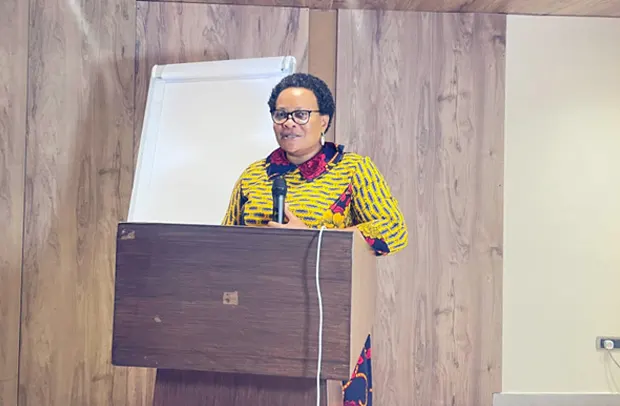Mary Addah
Some journalists in Accra have received intensive training on governance and anti-corruption reforms in Ghana, put together by the Ghana Anti-Corruption Coalition (GACC), in partnership with the Ghana Integrity Initiative (GII) and the Africa Centre for Energy Policy (ACEP), at a one-day workshop in Accra.
The workshop was aimed at equipping selected journalists from both public and private media houses with the requisite tools to enhance their contributions to the fight against corruption.
Funded by the Foreign, Commonwealth & Development Office (FCDO) of the United Kingdom (UK), the workshop forms part of a project by the GACC and its partners dubbed “An Anti-Corruption Initiative for Enhancing Governance and Accountability.”
The goal of the project is to bolster the role of the media in their reportage of governance issues accurately and empowering citizens with reliable information to hold institutions accountable.
Executive Director of the Ghana Integrity Initiative (GII), Mary Addah, stressed the importance of the workshop in proposing practical solutions to governance issues, adding that the media is a powerful agent for development and social change needed to address corruption.
“The media is a powerful agent in the development and change we need. That’s why we are training journalists to ensure accurate reporting to the citizens,” she remarked.
Madam Mary Addah highlighted the need for continued advocacy, driven by well-informed media professionals, to ensure that the public receives accurate and relevant information on governance and anti-corruption efforts.
Lead for the Democracy Project, Prof. John Osei Kwapong, also highlighted the media’s critical function in moderating Ghana’s increasingly polarised conversations, emphasising the need for journalists to be independent fact-checkers to prevent the spread of misinformation.
“We need independent voices who can moderate our polarising conversations, and I’m looking at the media to play that role. I’m looking at the media to fact-check and ensure that when erroneous information is being circulated, the media becomes the place where these issues are clarified,” he stated.
For his part, Samuel Harrison-Cudjoe, Programmes Officer of GACC, elaborated on the significance of engaging the media, explaining that the workshop was organized to elicit insights from journalists on how to tackle governance and anti-corruption challenges.
Mr. Harrison-Cudjoe also noted that the project would run for four years, and that Civil Society Organisations (CSOs) would be involved in future engagements through regional meetings in all 16 regions of the country, fostering collaborative efforts between CSOs and the media.
The workshop provided participants with critical tools and knowledge on corruption, empowering them to report effectively and advocate for transparency and accountability.
As the project unfolds over the next four years, it is expected to build a robust network of journalists and CSOs committed to promoting transparency, governance reforms, and anti-corruption measures across all regions of Ghana.
By Nii Adjei Mensahfio


